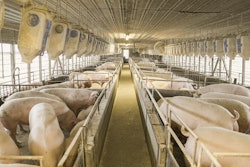
The Wisconsin Soybean Association (WSA) and the Wisconsin Soybean Marketing Board (WSMB) have expressed deep disappointment following Chevron's announcement to indefinitely close its biodiesel facility in Madison. This development comes as a significant setback for the state's soybean farmers, grappling with falling crop prices and high input costs.
WSA President Sara Stelter voiced concern over the impact of the closure on local farmers, urging Wisconsin's legislative leaders to consider supportive biofuel industry legislation akin to measures adopted in neighboring states. Stelter highlighted the stark evidence presented by the plant's shutdown, emphasizing the need for policy interventions to aid producers.
In response to the ongoing uncertainty in the biofuels market, WSA had previously endorsed Senate Bill 454, aimed at providing $8 million in matching grants through the Wisconsin Department of Agriculture, Trade and Consumer Protection (DATCP). These funds would assist fuel retailers in upgrading their infrastructure to accommodate higher blends of ethanol and biodiesel, fostering a more robust biofuels sector.
The closure strikes at a time when biomass-based diesel consumption and production in the country have seen a notable increase of 1 billion gallons over the previous year. The American Soybean Association, with WSA as a state affiliate, supports federal tax credits designed to bolster the biofuels industry further.
Biodiesel production not only benefits soybean growers by adding value to their crops but also supports the state's economy by creating jobs and enhancing farmer profitability. Adam Kask, executive director of WSMB, pointed out the critical role of biodiesel in the state's agricultural sector, emphasizing over two decades of farmers' checkoff investments in the industry. Kask expressed hope that the recent developments would serve as an industry-wide wake-up call, pressing for more favorable biofuel policies to seize the vast economic and environmental opportunities presented by markets like sustainable aviation fuel.


















